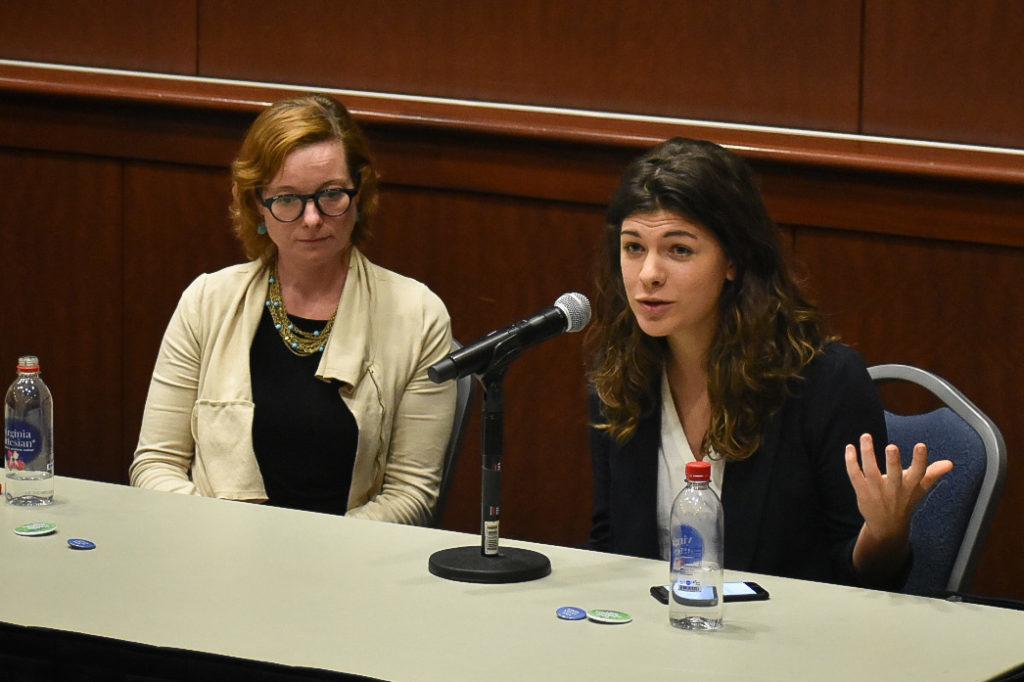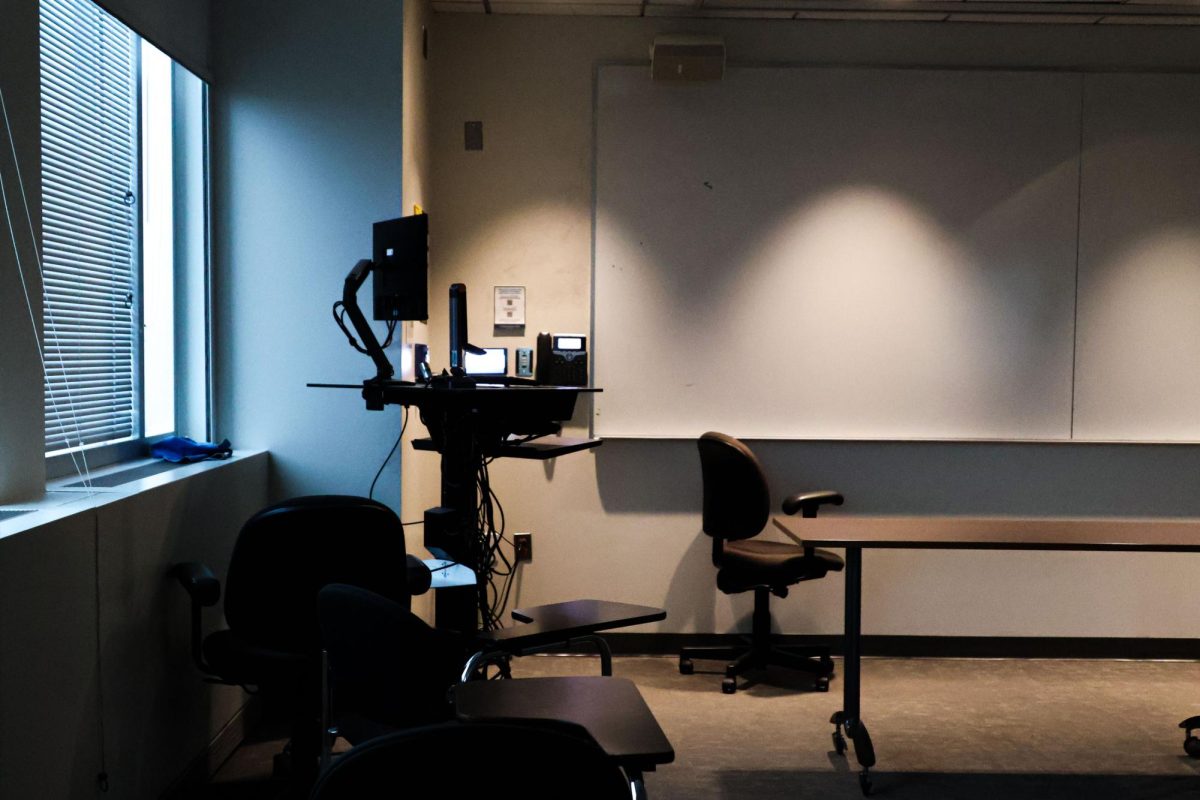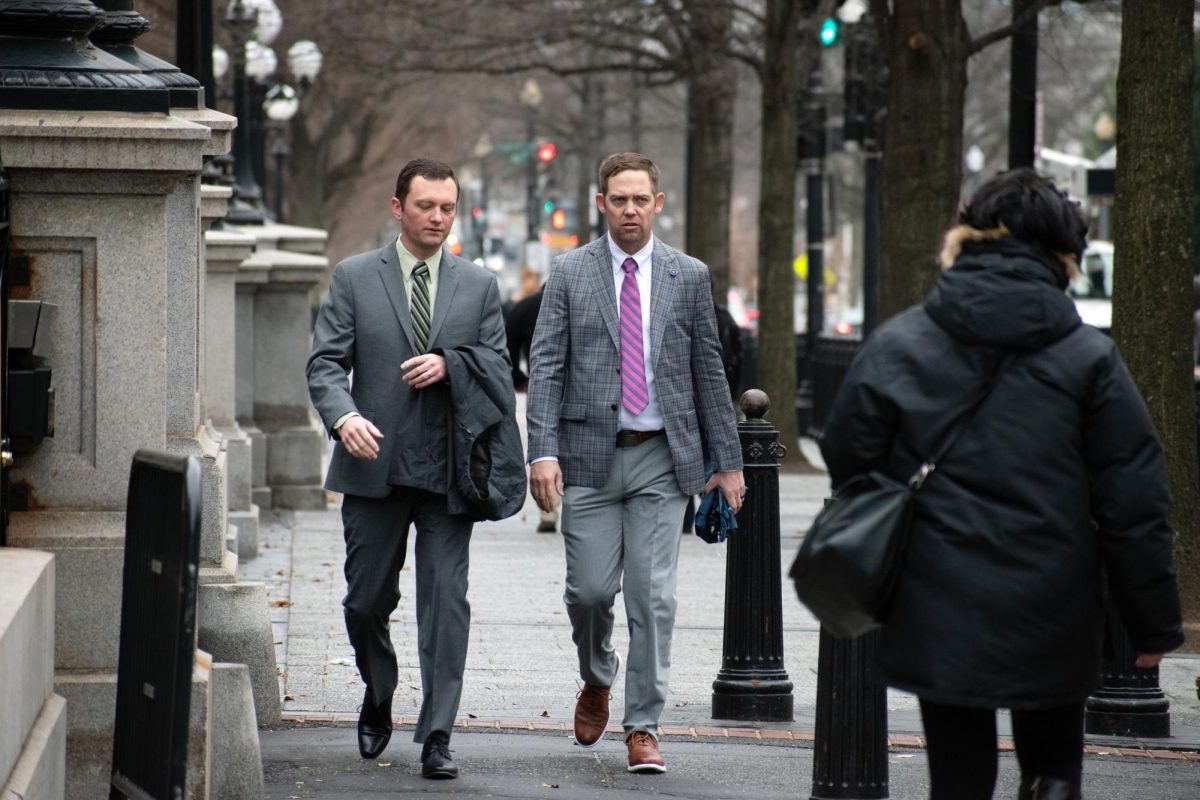Updated: April 12, 2018 at 8:57 p.m.
A panel of sustainability experts marked the start of the Nashman Center’s food scarcity awareness week with a conversation in the Marvin Center about food deserts in D.C. Monday.
The week – also hosted by GW Civic House, a freshman residential group for service learning, and co-sponsored by organizations including Green GW, the Food Institute and GW’s food pantry – aims to call attention to the issue of food insecurity across the District and how it can be improved, according to its Facebook page.
Theresa Meyers, the foundation and government relations manager at D.C. Central Kitchen, a community kitchen that trains unemployed adults to cook meals for homeless shelters and schools, said that food deserts – an urban area where fresh food is either inaccessible or too expensive to buy – are mostly concentrated in D.C. Wards 7 and 8.
“City-wide, there are 49 grocery stores,” Meyers said. “In Wards 7 and 8 there are three grocery stores for 150,000 people.”
Meyers said she and other activists are combating food scarcity by sponsoring the Healthy Corner Program, which supports 60 local shops that stock locally grown and fresh produce.
“It’s a powerful way to make sure there are food access points,” she said.
Meyers added that the University does not currently have a campus kitchen project, an intiative to prevent food waste, which could be one way for students to get involved with curbing food insecurity in their community.
“Campus kitchen projects work to recover food that would have gone to waste,” she said. “Stop and think about where your food is coming from.”
To further address food insecurity, GroW Garden Manager Elizabeth Ferrante said the garden donates its food to Mariam’s Kitchen, which provides food to chronically homeless people in the District.
She added that one of the important aspects of addressing problems like food deserts is knowing who exactly needs help and focusing efforts – like supplying corner stores or creating food banks – in the most affected areas.
“I don’t think most GW students understand the policy behind food insecurity,” she said. “Most GW students aren’t on SNAP. They don’t understand how unpleasant it would be to cut SNAP benefits.”
To get involved, panelists recommended that students become more educated on the issues that affect D.C. residents and volunteer at food kitchens or the GroW Garden to gain a better sense of the problem.
“Simple things like doing clean-ups make a huge difference,” Tara Scully, a teaching assistant professor of biology, said.
Morgan Camp contributed reporting





